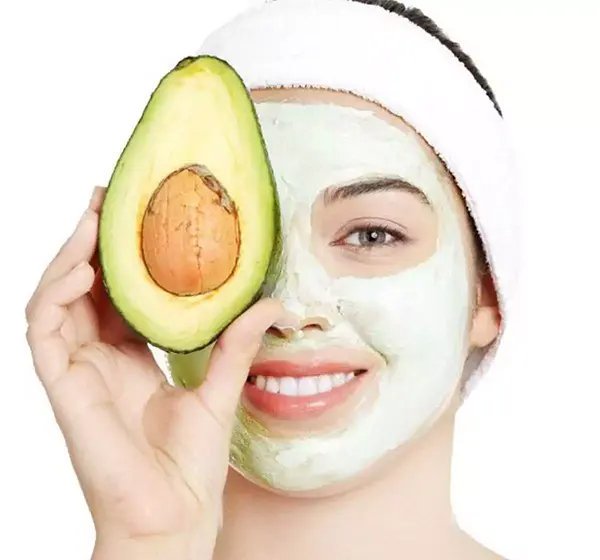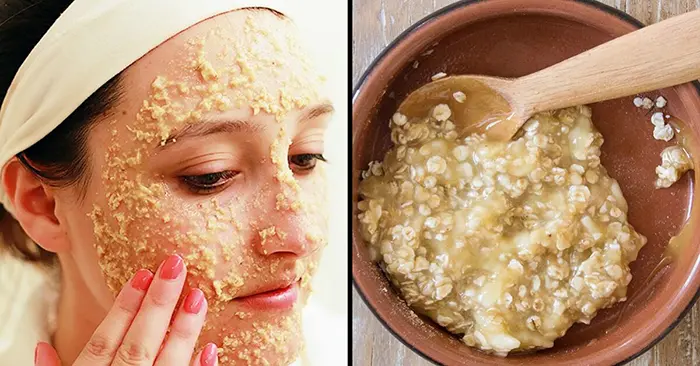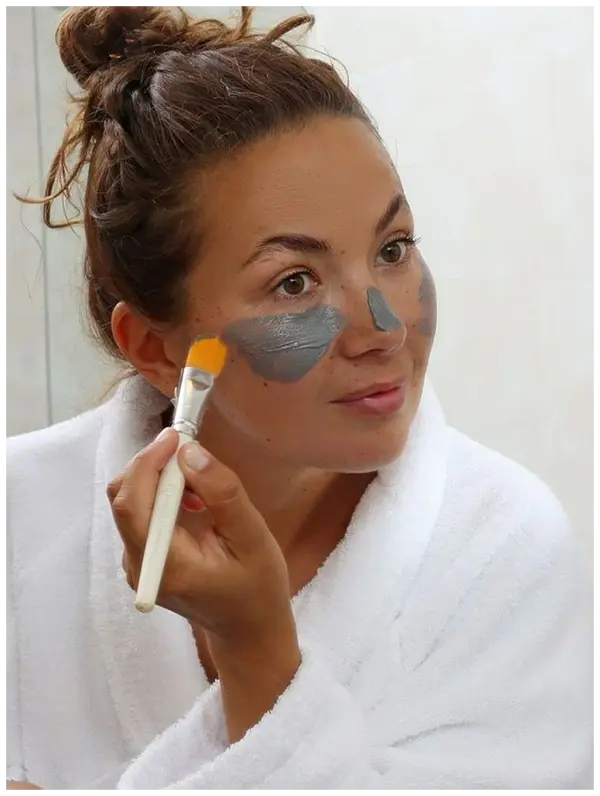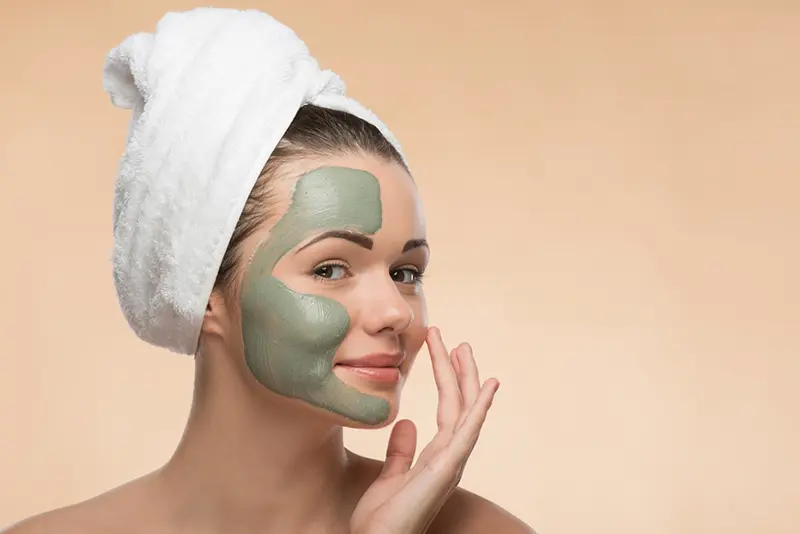In the modern world, when everything moves so quickly, it might be difficult to find the time to indulge in self-care activities. But what if I told you that you could attain skin that looks like it was treated at a spa without leaving the comfort of your own home? You did hear that correctly, didn’t you? In addition to being a fun and inexpensive way to engage in some self-care, DIY face masks are also really effective.
This article will cover all you need to know about DIY face masks that you can make at home, including the advantages of using them, recipes, and several ways to get beautiful skin. The path to glowing skin is an exciting one, so let’s get started!
Table of contents
The Benefits of DIY Face Masks
Before we get into the recipes, let’s take a moment to discuss the reasons why homemade face masks are so incredible. To begin, they are extremely economical in its use of resources. There is no need to spend a fortune on expensive spa treatments when you can make masks that are just as effective with products that you most likely already have in your kitchen. You are able to control what gets on your skin when you make your own masks, which means you won’t have to worry about harsh chemicals or unknown additions. Using fresh, natural products that are beneficial to both you and the environment is the most important thing to keep in mind.
Cost-Effective: Store-bought masks can be pricey, especially those with high-quality ingredients. DIY face masks, on the other hand, often use ingredients you already have in your kitchen, making them a budget-friendly option.
Customizable: One of the greatest benefits of homemade face masks is the ability to tailor them to your skin’s specific needs. Whether you need extra hydration, a deep cleanse, or a brightening boost, you can mix and match ingredients to create the perfect mask for you.
Natural Ingredients: DIY face masks allow you to control what goes on your skin. You can avoid harsh chemicals and preservatives commonly found in commercial products, opting instead for natural, skin-loving ingredients.
Fun and Creative: Making your own face masks can be a fun and therapeutic activity. It’s a chance to get creative, experiment with different ingredients, and pamper yourself in the comfort of your home.

Best DIY Face Mask Recipes
After that, let’s go on to the exciting part, which is producing your own DIY face masks! For your convenience, here are seven do-it-yourself face mask recipes that are not only simple but also highly effective.
1. Hydrating Honey and Avocado Mask
Ingredients:
- 1 ripe avocado
- 2 tablespoons honey
- 1 tablespoon plain yogurt
Instructions:
- Mash the avocado in a bowl until smooth.
- Add the honey and yogurt, and mix until well combined.
- Apply the mixture to your face and leave it on for 15-20 minutes.
- Rinse off with warm water and pat your skin dry.
Benefits: The benefits of using this mask are that it is ideal for dry skin. The avocado is loaded with beneficial fats and vitamins that are beneficial to your skin since they nourish and moisten it. Honey has the ability to act as a natural humectant, which means that it assists your skin in retaining moisture. Lactic acid, which is found in yogurt, is a moisturizing and exfoliating agent that also helps to soften your skin.
2. Soothing Oatmeal and Banana Mask
Ingredients:
- 1 ripe banana
- 1/2 cup oatmeal
- 1 tablespoon honey
Instructions:
- Mash the banana in a bowl.
- Cook the oatmeal according to package instructions and let it cool.
- Mix the oatmeal, banana, and honey together.
- Apply to your face and leave it on for 15-20 minutes.
- Rinse with warm water and enjoy your soft, smooth skin.
Benefits: This mask is perfect for sensitive or irritated skin. Oatmeal has anti-inflammatory properties that can soothe and calm the skin. Bananas are rich in vitamins and minerals that nourish the skin, and honey adds a touch of hydration.

3. Acne-Fighting Turmeric and Yogurt Mask
Ingredients:
- 2 tablespoons plain yogurt
- 1 teaspoon turmeric powder
- 1 tablespoon honey
Instructions:
- Mix the turmeric powder, yogurt, and honey in a bowl until you have a smooth paste.
- Apply the mask to your face, avoiding the eye area.
- Leave it on for 10-15 minutes.
- Rinse off with warm water and gently pat your face dry.
Benefits: Turmeric has anti-inflammatory and antibacterial properties that can help reduce acne and prevent future breakouts. Yogurt soothes and hydrates the skin, while honey adds an extra layer of antibacterial action.
4. Detoxifying Charcoal and Aloe Vera Mask
Ingredients:
- 1 tablespoon activated charcoal powder
- 2 tablespoons aloe vera gel
- 1 teaspoon coconut oil
Instructions:
- Mix the activated charcoal, aloe vera gel, and coconut oil in a bowl.
- Apply the mask to your face and let it sit for 10-15 minutes.
- Rinse off with warm water.
Benefits: Activated charcoal draws out impurities and toxins from your skin, while aloe vera soothes and hydrates. This mask is perfect for those with oily or acne-prone skin.

5. Brightening Papaya and Lemon Mask
Ingredients:
- 1/2 cup ripe papaya, mashed
- 1 tablespoon lemon juice
- 1 tablespoon honey
Instructions:
- Mash the papaya until smooth.
- Add lemon juice and honey, and mix well.
- Apply the mixture to your face and leave it on for 15-20 minutes.
- Rinse off with cool water.
Benefits: Papaya contains natural enzymes that exfoliate and brighten the skin, while lemon juice adds a dose of vitamin C for a radiant complexion. Honey helps to lock in moisture.
6. Anti-Aging Egg White and Aloe Vera Mask
Ingredients:
- 1 egg white
- 2 tablespoons of aloe vera gel
- 1 teaspoon of lemon juice
Instructions:
- Whisk the egg white in a bowl until frothy.
- Add the aloe vera gel and lemon juice, and mix well.
- Apply the mask to your face and leave it on for 15 minutes.
- Rinse off with cool water and enjoy your smooth, youthful skin.
Benefits: This mask is ideal for reducing the appearance of fine lines and wrinkles. Egg whites help to tighten and firm the skin, while aloe vera provides hydration and soothes any irritation. Lemon juice adds a brightening effect to your complexion.
7. Moisturizing Banana and Coconut Oil Mask
Ingredients:
- 1 ripe banana
- 1 tablespoon coconut oil
Instructions:
- Mash the banana until smooth.
- Mix in the coconut oil until well combined.
- Apply to your face and leave it on for 15-20 minutes.
- Rinse off with warm water.
Benefits: Bananas and coconut oil provide deep hydration and nourishment to dry skin. Coconut oil also has anti-inflammatory and antibacterial properties.
Tips for Using DIY Face Masks
To get the most out of your DIY face masks, keep these tips in mind:
- Patch Test: Always do a patch test before applying a new mask to your entire face to ensure you don’t have an adverse reaction.
- Clean Skin: Apply masks to clean, dry skin for better absorption of the ingredients.
- Relax: Use mask time as an opportunity to relax and unwind. Light a candle, play some calming music, and enjoy the pampering.
- Consistency: For best results, use DIY face masks regularly, but not more than 2-3 times a week to avoid over-exfoliating or irritating your skin.
- Follow Up: Always follow up with a good moisturizer to lock in the benefits of your mask.
Conclusion
DIY face masks are an excellent method to give your skin the much-needed attention and care it requires without breaking the budget. Masks that provide hydration, exfoliation, and a healthy glow may be made by using the appropriate materials and a little bit of ingenuity. These masks can be tailored to meet the specific requirements of your skin. Therefore, why not give it a shot? If you do this, your skin will be grateful to you.
FAQs About DIY Face Masks
1. How often should I use a DIY face mask?
It’s best to use DIY face masks 2-3 times a week to avoid over-exfoliating or irritating your skin.
2. Can I store leftover face mask mixtures?
Most DIY face masks are best used fresh, but some mixtures can be stored in the refrigerator for up to a week. Always check for any changes in smell or texture before reusing.
3. Are DIY face masks suitable for all skin types?
Yes, but it’s important to choose ingredients that match your skin type. For example, oily skin might benefit from charcoal masks, while dry skin can use avocado or honey-based masks.
4. Can I use DIY face masks if I have sensitive skin?
Absolutely! Ingredients like oatmeal, banana, and aloe vera are gentle and soothing for sensitive skin. Always do a patch test first to ensure there’s no adverse reaction.
5. What should I do if I experience irritation from a DIY face mask?
If you experience irritation, rinse off the mask immediately with cool water. Apply a soothing moisturizer and avoid using the irritating ingredient in the future.
Related Posts:
7 best homemade face masks to make your skin glow
DIY Skincare Recipes: Nourish Your Skin Naturally









